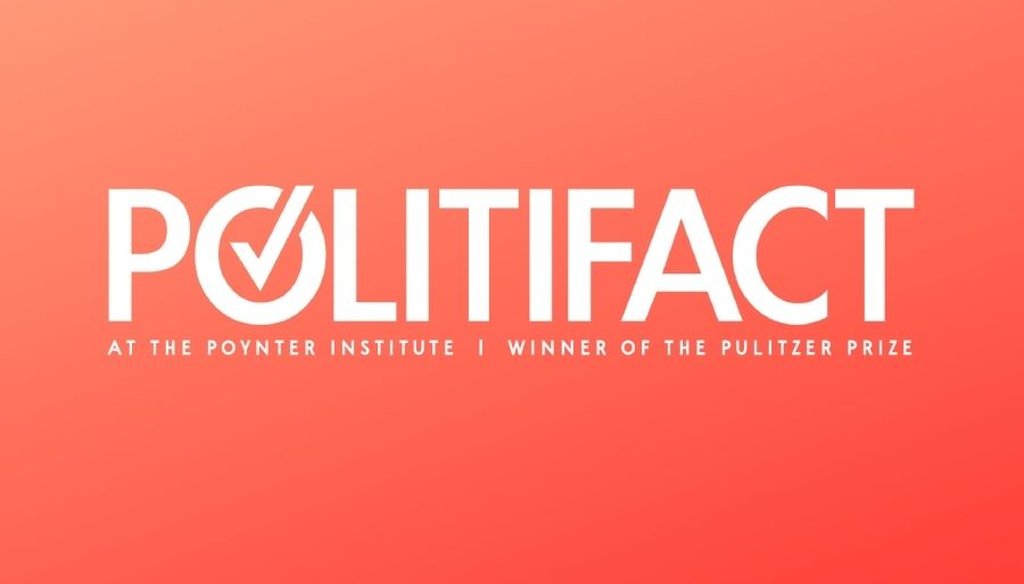Stand up for the facts!
Our only agenda is to publish the truth so you can be an informed participant in democracy.
We need your help.
I would like to contribute

President Barack Obama, with Vice President Joe Biden, speaks in the Rose Garden on June 25, 2015, after the U.S. Supreme Court upheld a key part of the Affordable Care Act. (AP Photo)
Shortly after the U.S. Supreme Court decided to uphold a key piece of the Affordable Care Act on June 26, 2015, President Barack Obama delivered an address filled with praise for the effects of the law. One cause for celebration Obama highlighted was the slowing down in price increases for premiums, a slowdown that has applied even to those workers not using the health care law.
"The law has helped hold the price of health care to its slowest growth in 50 years. If your family gets insurance through your job -- so you're not using the Affordable Care Act -- you're still paying about $1,800 less per year on average than you would be if we hadn't done anything," he said.
We were curious about two claims Obama made in this speech: first, the $1,800 figure; and second, that health care spending would not be lower if the Affordable Care Act had not been passed.
We found that the evidence is inconclusive. There’s proof that people are paying less than they would if premium rates had continued to increase along their old rate of growth, but it’s impossible to determine just how much of the slowdown — and the $1,800 figure Obama mentioned — is due to the Affordable Care Act.
The case for the Affordable Care Act
A spokesman for the White House pointed us to a blog post from April written by Jason Furman, chairman of the Council for Economic Advisers, in which he explains the source of the $1,800 statistic.
Furman took the average premium growth rate for employer-based coverage from 2000-10, and then extrapolated what the cost of the average premium would have been in 2014. He then compares this hypothetical figure with the actual premium; the discrepancy is about $1,830 in favor of the actual premium, which rounds down to $1,800.
The result of this calculation is not particularly controversial — premium growth rates have been steadily decreasing since the middle of the last decade — but there’s a fierce academic debate over how much of the slowdown in private health care spending can be attributed to the effects of the Affordable Care Act.
For its part, the administration points to two ways that health care legislation has reduced spending in private health care. First, reductions to Medicare spending under the Affordable Care Act may have a "spillover" effect onto private insurers; that is, lowering Medicare payments can also cause private insurers to lower their prices. One study showed that for every 10 percent reduction in Medicare payment rates, private insurance payment rates also decreased, either 3 or 8 percent.
The second benefit reforms to Medicare that encourage more efficient service from hospitals — reduced readmissions for hospital patients, for example — will also apply to patients covered by private insurers, improving their quality of care and reducing costs for them.
Alternate factors
Nevertheless, many policy analysts point to a couple of other factors as equal, if not greater, contributors to the premium decreases.
The first of these is the recession. A study from the Kaiser Foundation attributed 77 percent of the slowdown in health care spending through 2011 to the decrease in GDP resulting from the economic downturn. One reason for this is that consumers will often scale back spendings on all goods and services, including health care, when their incomes decrease; another is that employers will cut health benefits or lay off workers, both outcomes that lead to decreased coverage, and therefore decreased spending.
Other studies have put the effect of the recession anywhere from 37 percent to 70 percent.
The White House has pushed back against this hypothesis, with Furman suggesting that current trends in health care spending cannot be explained by a recession that has already been over for quite some time. Furman also points to decreases in Medicare spending — a sector whose variations tend to be relatively insulated from those of the overall economy — as an indication that larger structural changes, such as those created by the Affordable Care Act, are at play.
Another explanation for slow-growing premiums can be found in the recent proliferation of high deductible plans, a form of insurance in which the premium (the monthly payment) is lower, but the deductible (the amount paid out-of-pocket for treatment before the insurer will begin to cover it) is more expensive. From 2006 to 2014, the deductible paid by the average worker for their health plan more than doubled, from $580 to $1200.
However, the effect of a higher deductible isn’t simply to increase costs for those seeking treatment; it also discourages those using high-deductible plans from going to the hospital in the first place. A study from the RAND Corporation found that while this doesn’t have serious adverse effects for the general population, those with lower incomes were more likely to have health issues with their blood pressure and vision.
Overall, most of the experts we talked to seemed reluctant to credit the Affordable Care Act as the sole cause of the slowdown in rates of premium growth for the average worker.
"There are several factors that likely contributed to the slowdown in health spending: the recession and slow recovery; the rise of high deductible plans; the number of blockbuster drugs going off-patent; and the ACA," said Thomas Buchmueller, a health economist and professor at the University of Michigan. "It is probably not possible to quantify the impact of each of these with any certainty."
Our conclusion
Obama said, "If your family gets insurance through your job -- so you're not using the Affordable Care Act -- you're still paying about $1,800 less per year on average than you would be if we hadn't done anything."
The first part of his statement is simple math: the decreased rate of premium growth for the average worker has come to about $1,800 since 2010.
The implication of the second half — that this spending reduction was almost wholly caused by the passage of the Affordable Care Act — is more controversial, and outside analysts generally agree that other factors, such as the recession and the spread of high-deductible health plans, have played at least as big a part in causing the slowdown in health care spending. It seems that even without the passage of the Affordable Care Act, then, workers would still have seen slower premium increases, though the health care law does appear to have had some effect. Some part of Obama’s $1,800 figure can comfortably be credited to the health care law, but some of it shouldn’t be. Is the number off by a little, or a lot? We can’t tell right now, so we’re leaving the statement unrated in hopes that more evidence will provide clarity at a later date.
Our Sources
Interview with Joseph Newhouse, Harvard University and Director of Division of Health Policy Research, June 29, 2015
Interview with Thomas Buchmueller, University of Michigan Ross School of Business, June 29, 2015
Interview with Jonathan Oberlander, UNC Chapel Hill, June 29, 2015
Interview with Mark McClellan, Brookings Institute, June 29, 2015
Interview with Robert Kaestner, University of Illinois at Urbana Champaign, June 29, 2015
Interview with Jesse C. Lee, White House Director of Progressive Media and Online Response, June 29, 2015
Health Affairs, Health Spending Slowdown Is Mostly Due To Economic Factors, Not Structural Change In The Health Care Sector, August 2014
Health Services Research, The End of Hospital Cost Shifting and the Quest for Hospital Productivity, Feb. 1, 2014
Council of Economic Advisers, Historically Slow Growth in Health Spending Continued in 2013, and Data Show Underlying Slow Cost Growth Is Continuing, Dec. 3, 2014
Council of Economic Advisers, The Economic Benefits of the Affordable Care Act, April 2, 2015
Kaiser Family Foundation, Employer Health Benefits Annual Survey, 2014
Kaiser Family Foundation, Assessing the Effects of the Economy on the Recent Slowdown in Health Spending, April 22, 2013
Economic Report of the President, March 2014
Health Affairs, Contrary To Cost-Shift Theory,Lower Medicare Hospital Payment Rates For Inpatient Care Lead To Lower Private Payment Rates, May 2013
Health Services Research, How Do Hospitals Cope with Sustained Slow Growth in Medicare Prices?, Feb. 1, 2014
Health Affairs, National Health Spending in 2013: Growth Slow, Remains in Step with Overall Economy, January 2015
USA Today, "Dilemma over deductibles, Costs crippling middle class," Jan. 1, 2015
The Rand Corporation, Analysis of High Deductible Health Plans, 2009









































